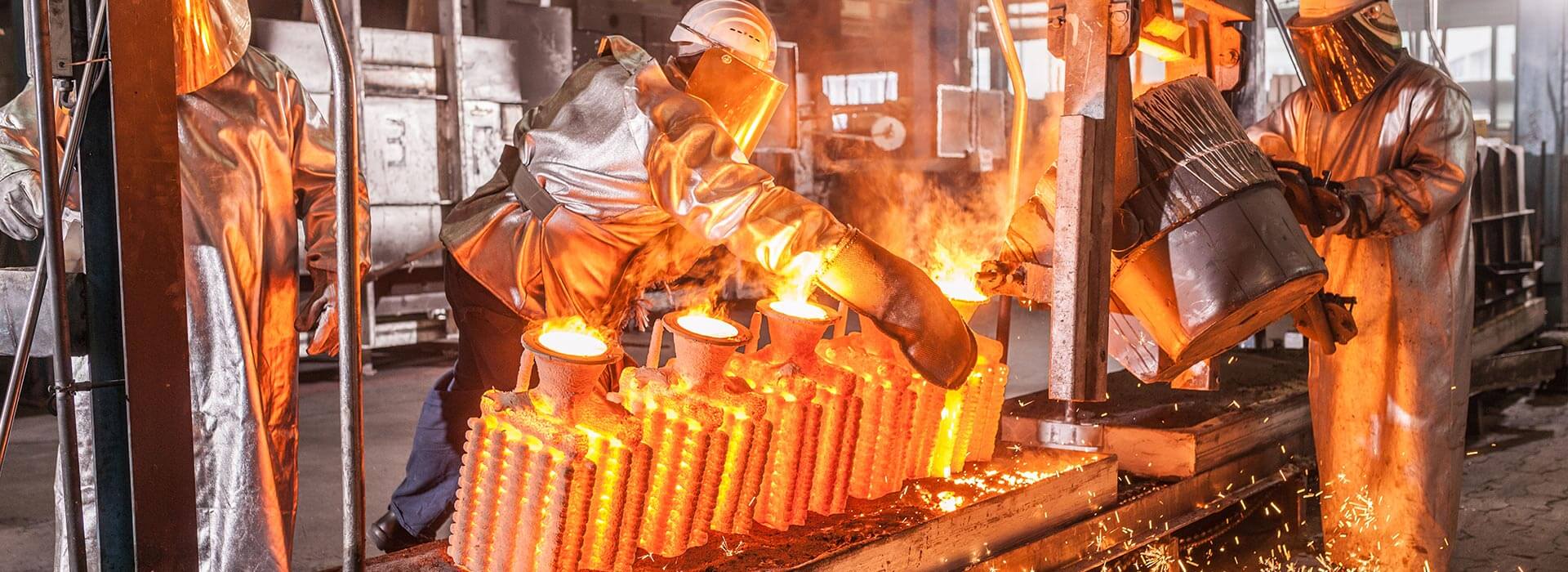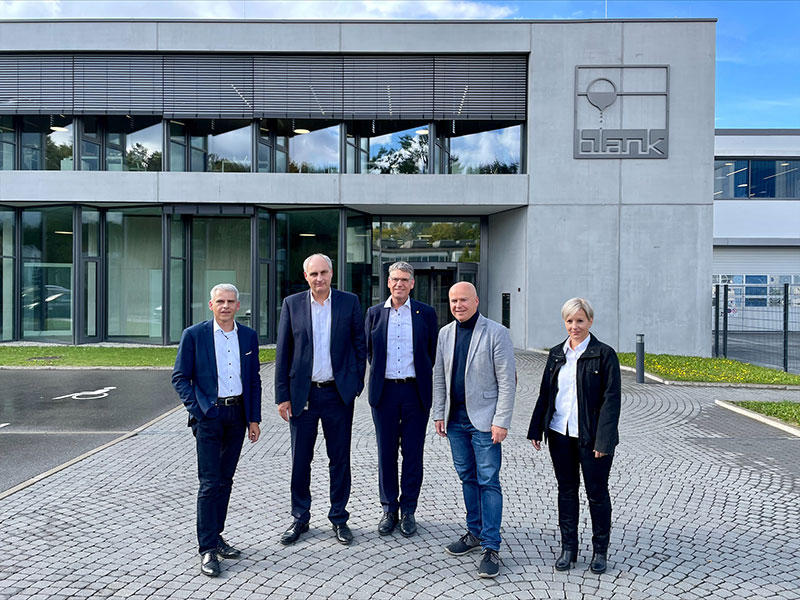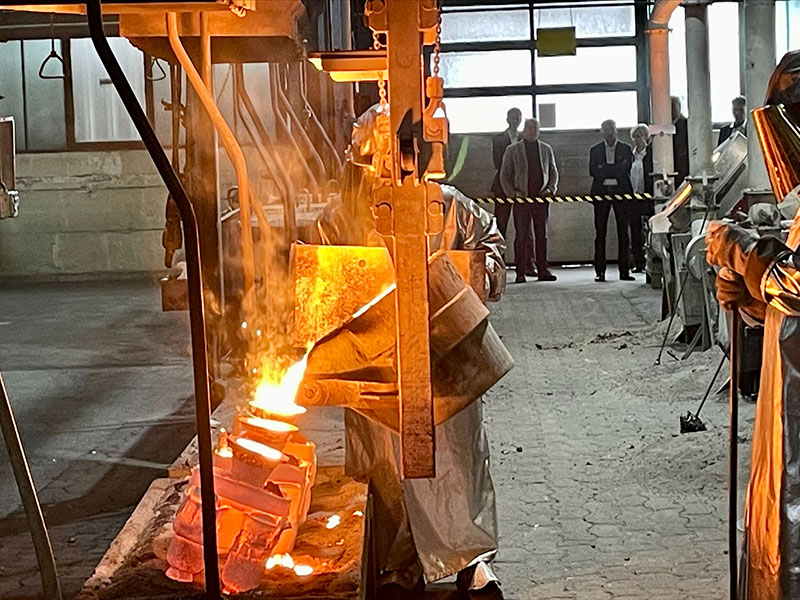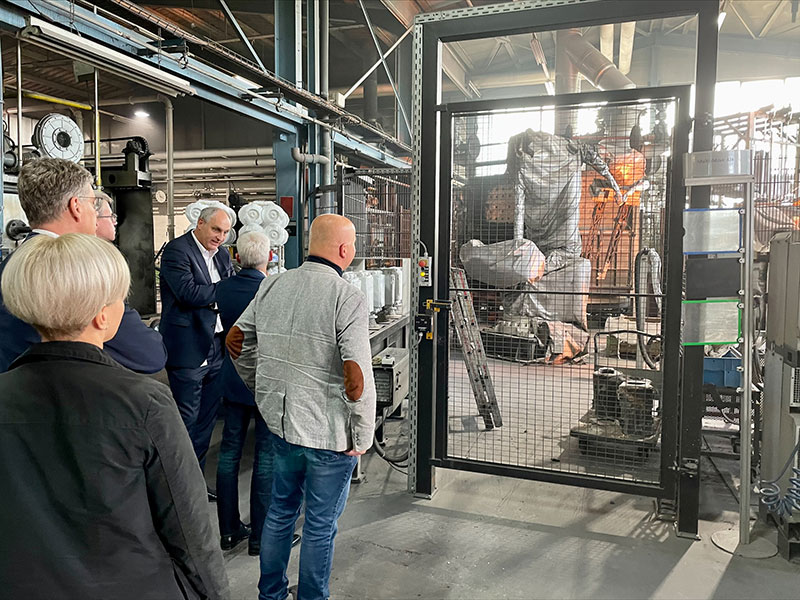The volatile market situation and the associated difficulties for companies are currently occupying the attention of entrepreneurs and politicians. The recent gas shortage is particularly affecting energy-intensive industries such as the investment foundry BLANK. Therefore, the Federal Association of the German Foundry Industry (BDG) suggested an exchange between business and politics and facilitated a meeting in Riedlingen on 26 September with an exchange between State Secretary Dr Rapp from the Ministry of Economics, Labour, and Tourism of the Federal State of Baden-Württemberg. Participants of the appointment were mayor Marcus Schafft as well as Max Schumacher, chief executive of BDG. From BLANK, business manager Juliane Blank and managing director Alexander Lenert took part in the exchange.
Alexander Lenert introduced the BLANK-Group as well as its structure and branches and spoke about the topic sales crisis in the automotive sector: "BLANK generates a large part of its sales in the automotive sector. This core business already broke significantly in 2018. Since then, the situation has continued to deteriorate." The company is working on new business areas to become an expert in niche markets, but it will take years to compensate for the loss of the automotive business. The sales crisis was followed by corona, resulting in short-time work, the chip crisis and supply chain instability in many areas that continues to this day. "It is therefore clear that the current gas crisis has further worsened the situation of many already struggling companies," says Lenert, "BLANK has the gas consumption of 800 single-family homes and needs as much electricity as 4,000 of them. Therefore, it cannot be denied that the current political decisions have an immense influence on our business activities.” Due to the high gas and electricity consumption, secured prices for a certain contingent of electricity and gas have been contracted until 2025, nevertheless BLANK is also confronted with price increases in case of higher calls – alone in 2023 an amount of one million euros additional costs. "It is clear to all of us that tripling prices or an increase beyond this is no longer economical when passing on the costs to the customer," emphasized Max Schumacher.
CO²-neutrality in energy procurement was also a topic: "We are lacking a technology that can be applied to a larger economic operation," said Lenert. For example, switching from gas to hydrogen is conceivable in the long term. Dr Rapp confirmed the already known fact that large-scale adaptations would be necessary which would have to be built up and further developed in the coming decades. "It is gratifying that we are currently establishing constructive cooperation with countries in the EU with regard to energy supply, but the same applies here: each country must first meet its own energy needs," said Rapp, "It is also clear that it cannot be a permanent solution for the state to regulate the market price for electricity and gas through relief packages and price caps. A permanent solution is needed that creates a reliable and stable planning basis for entrepreneurs. This is currently being worked on at full speed." Rapp emphasizes that for example the electricity market design cannot be changed by Germany alone. It is necessary to work together with all member states at the EU level to find a generally acceptable solution. Mayor Schafft noted that every effort should be made to expedite construction projects that support alternative energy generation. "Unfortunately, we continue to face lengthy permitting processes that often delay innovative energy generation construction projects for years or prevent them altogether." This has to be changed in future.
In response to the well-known statement by politicians that medium-sized companies have to bridge the current situation with the profits of past years, Max Schumacher emphasized that the profit margin in the foundry industry is 0.7 percent. "Based on this figure it becomes clear that bridging, especially when profits are facing a high block of fixed costs, is possible only for a few months at best."
The conclusion of the lively exchange was the consensus that the price spiral must not continue to spiral upwards endlessly. "Germany as a business location is already considerably losing attractiveness and competitiveness," said Schumacher, "This development must be absolutely stopped.” Dr Rapp was grateful for the open exchange and took the time beyond the scheduled appointment to experience closely the investment casting process. At the end he did not miss the opportunity to take a selfie with the trainees. Alexander Lenert thanked all the guests and summarized: “We hope that the federal government will set the right course for the economy and medium-sized enterprises immediately.”




